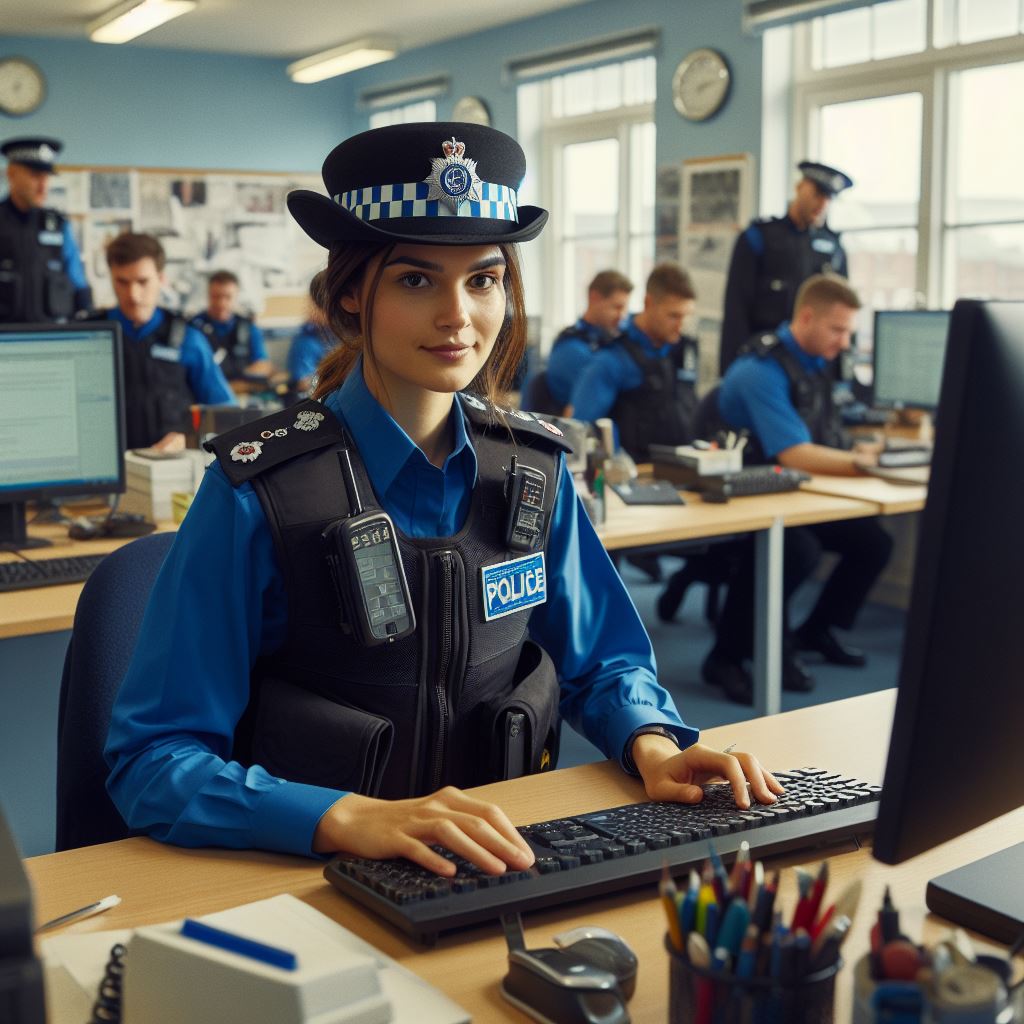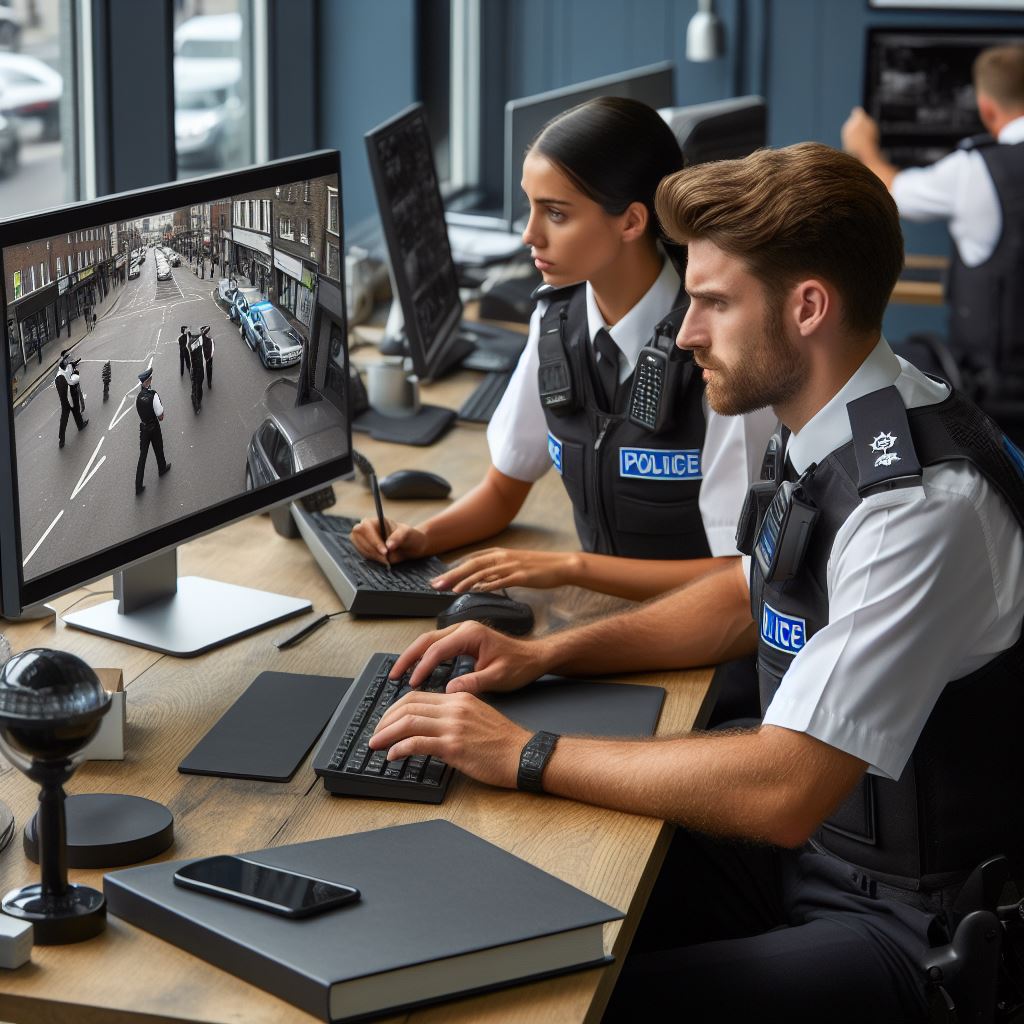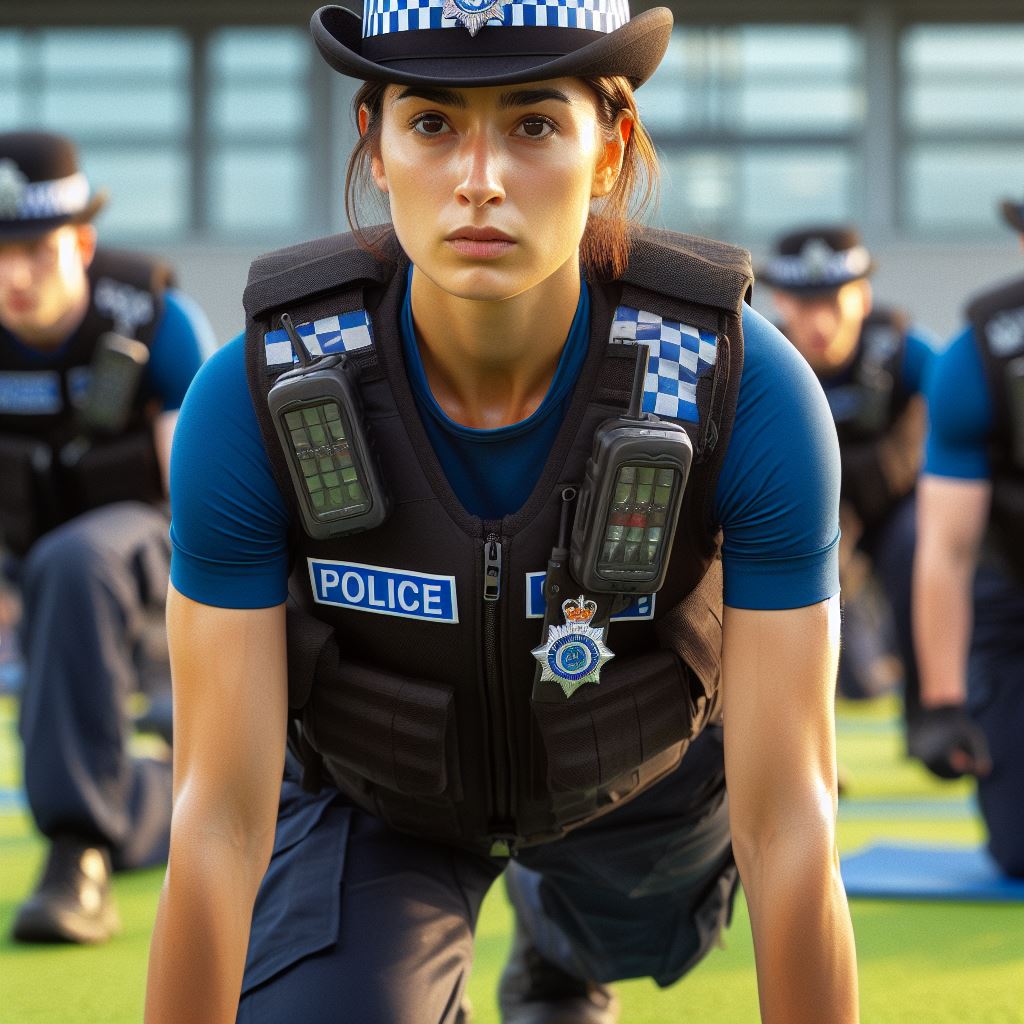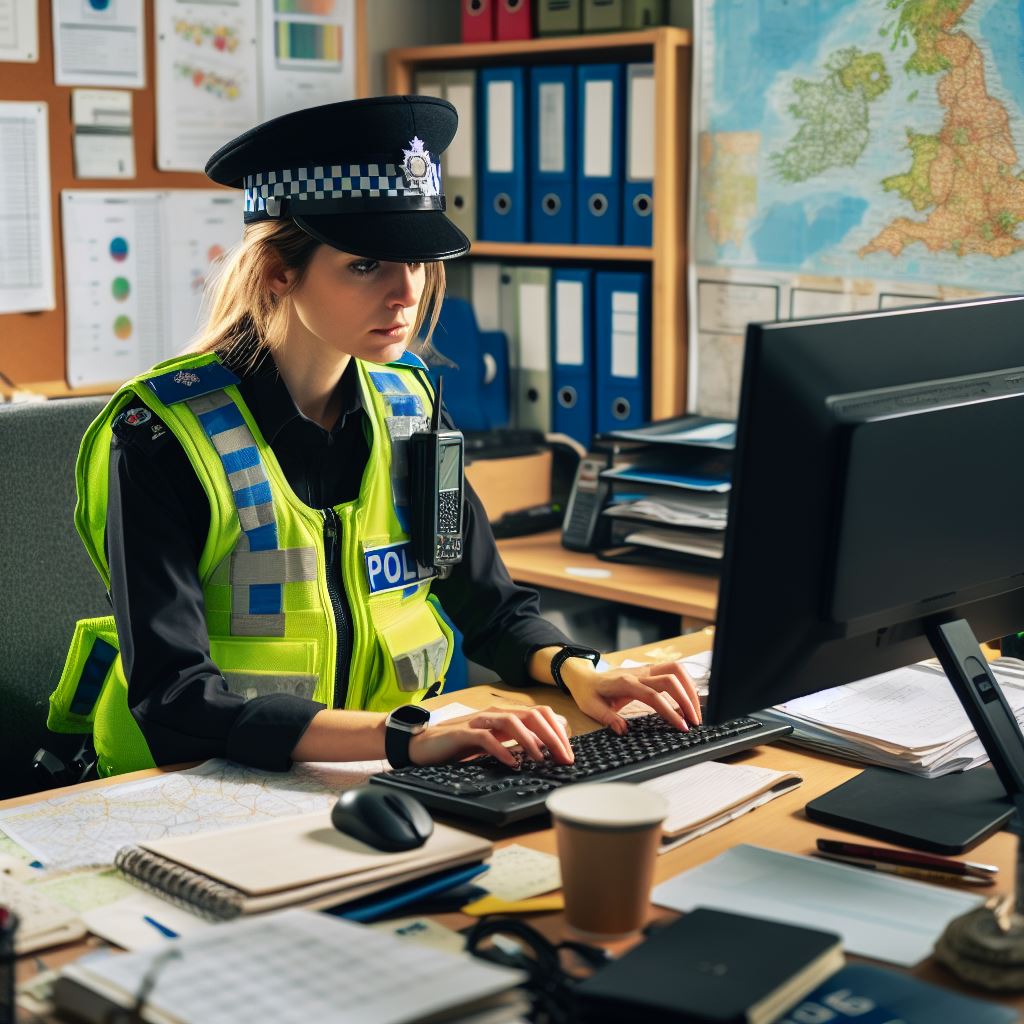Introduction
The evolution of policing in the United Kingdom is a topic of great significance and relevance.
Understanding its development helps in comprehending modern-day policing practices and shaping future policies.
Exploring the historical context and changes in policing methods is crucial.
This study sheds light on the factors that influenced the transformation of policing in the United Kingdom.
Studying this evolution provides insights into the challenges faced by early police forces.
Additionally, it examines the societal and political factors that shaped the progression of policing.
Understanding the development of policing in the United Kingdom allows us to appreciate the current system.
Further, this knowledge aids in addressing any shortcomings and implementing necessary reforms.
The United Kingdom’s evolution of policing serves as a blueprint for other countries experiencing similar changes.
Moreover, it highlights the importance of adapting and evolving policing strategies based on societal needs.
Analyzing this topic facilitates the examination of the relationship between the police and the communities they serve.
Studying the evolution of policing in the United Kingdom not only provides historical insights but also helps in enhancing law enforcement strategies today.
In general, delving into the evolution of policing in the United Kingdom carries substantial relevance and significance in shaping the current and future policing practices, policies, and community relationships.
Historical Background
The beginnings of policing in the UK
The beginnings of policing in the UK can be traced back to the Anglo-Saxon period. Initially, communities relied on a system of mutual responsibility called the “Hue and Cry.”
Early policing primarily relied on local volunteers, responding to immediate community needs
Personalized UK Career Consulting
Receive tailored career guidance designed just for you. Get actionable steps and expert support to boost your career in 1-3 days. Take control of your career now.
Get StartedOrigins of the Bow Street Runners and early forms of law enforcement
The Bow Street Runners, established in 1749 by Henry Fielding, were considered the first professional police force.
Bow Street Runners served as a precursor to modern police forces and focused on maintaining law and order in London.
These early law enforcement officers were paid by the government and were proficient in investigations.
Major developments and changes in policing practices over time
- At the beginning of the 19th century, the Industrial Revolution brought significant changes to policing.
- The Metropolitan Police Act of 1829 established the Metropolitan Police Service for London, led by Sir Robert Peel.
- Peel’s principles, known as the Peelian Principles, emphasized preventive policing and community collaboration.
- The establishment of the Metropolitan Police marked the birth of modern policing in the UK.
- The Irish Constabulary Act of 1822 led to the development of a similar police force in Ireland.
- Throughout the 19th century, various local police forces were set up across different parts of the UK.
- These forces were often under the control of municipal corporations and lacked standardization.
- The County and Borough Police Act of 1856 aimed to regulate and improve these local police forces.
- With the formation of the Police Federation in 1919, police officers gained more representation and collective voice.
- During World War II, the role of the police expanded to include civil defense and wartime security.
- In 1964, the Police Act led to the creation of regional police forces, increasing efficiency and coordination.
- An important milestone in the modernization of UK policing was the Police and Criminal Evidence Act of 1984.
- This act introduced standardized codes of practice, including guidelines for stop and search procedures.
- Also, community policing gained prominence, emphasizing partnerships and problem-solving strategies.
- The 21st century witnessed advancements in technology, enabling rapid communication and data-driven policing.
Today, the UK has a complex policing landscape, with various organizations responsible for maintaining law and order
These organizations include territorial police forces, special police forces, and the National Crime Agency.
The evolution of policing in the United Kingdom showcases a journey of progress, adaptability, and response to societal needs.
Read: Career Progression Paths for UK Police Officers
The Formation of the Metropolitan Police
In 1829, the Metropolitan Police was formed by Sir Robert Peel, the Home Secretary.
Peel’s philosophy of policing was based on the idea of prevention rather than mere reaction.
Principles behind Peel’s philosophy of policing
The principles behind Peel’s philosophy included the use of a professional police force and crime prevention.
Peel’s principles laid the foundation for modern policing strategies and practices.
Policing by consent, where the public supported and cooperated with the police, was a crucial element of his philosophy.
The introduction of a uniformed police force was initially met with resistance, as it was seen as an intrusion on personal freedoms.
However, over time, the visible police presence provided a sense of security and order in the rapidly growing urban areas.
Impact and significance of this new model of policing
- The formation of the Metropolitan Police had a significant impact on law enforcement in the United Kingdom.
- The Metropolitan Police became the first professional and disciplined police force in the world.
- Peel’s emphasis on preventive policing and deterrence rather than mere reaction led to a decline in crime rates in London.
- The success of this model inspired other cities and countries to adopt similar approaches, leading to the development of modern policing worldwide.
- Peel’s principles also paved the way for technological advancements in policing.
- The integration of technology and innovation became an essential aspect of law enforcement.
- This continual evolution ensures that policing remains effective and efficient in tackling emerging challenges.
In summary, the formation of the Metropolitan Police by Sir Robert Peel in 1829 marked a turning point in the evolution of policing in the United Kingdom.
Peel’s philosophy of policing emphasized crime prevention, professionalization, and public support.
Your Dream Job Starts with a Perfect CV
Get a tailored CV and cover letter that captures your unique strengths and stands out in your industry. Let us help you make an unforgettable first impression.
Get StartedThis new model of policing not only improved public safety but also had a profound impact on law enforcement worldwide.
The principles behind Peel’s philosophy continue to shape modern policing strategies and practices, ensuring the maintenance of law and order in society.
Read: How UK Police Handle Major Events & Crises
Victorian Era and Modernization
The Victorian era in the United Kingdom witnessed several challenges in policing, along with efforts made to modernize the police force.
Policing Challenges During the Victorian Era
- Poor infrastructure, rapid urbanization, and increasing population posed significant challenges for law enforcement.
- High rates of crime, particularly in larger cities, necessitated a more organized and efficient policing system.
- Widespread poverty and social inequality led to various forms of criminal activities and unrest.
- Limited manpower and resources made it difficult for the police to effectively maintain law and order.
- Insufficient legislation and outdated methods of crime prevention hampered the effectiveness of the police force.
Efforts to Modernize the Police Force
Recognizing the need for change, the Victorian era saw significant developments in policing:
Development of Detective Work
- The establishment of dedicated detective units marked a major milestone in improving crime investigation.
- With the creation of detective forces, specialized officers were trained in various investigative techniques.
- The focus shifted from reactive patrolling to proactive crime detection and prevention.
- New methods, such as surveillance, informants, and undercover operations, were introduced.
Advancements in Forensic Science
- The application of scientific principles in crime investigation played a crucial role in modernizing policing.
- Forensic science disciplines like fingerprint identification, ballistics, and toxicology were developed.
- These scientific methods enhanced evidence collection, identification, and conviction of criminals.
- Experts in forensic science became valuable assets to the police force in solving complex cases.
Implementation of New Technologies and Communication Systems
- The introduction of telegraphs and telephone systems revolutionized communication in policing.
- Efficient communication networks enabled quick sharing of information and coordination between police stations.
- Telegraph lines provided a direct means of contacting law enforcement agencies across the country.
- Other technological advancements like photography aided in suspect identification and record-keeping.
The Victorian era posed significant challenges for policing in the United Kingdom.
Despite historical challenges, modernization initiatives, including enhanced detective work, forensic science, and advanced technology, have substantially improved policing.
These developments laid the foundation for the modern policing methods and practices used today.
Read: Balancing Work-Life as a UK Police Officer
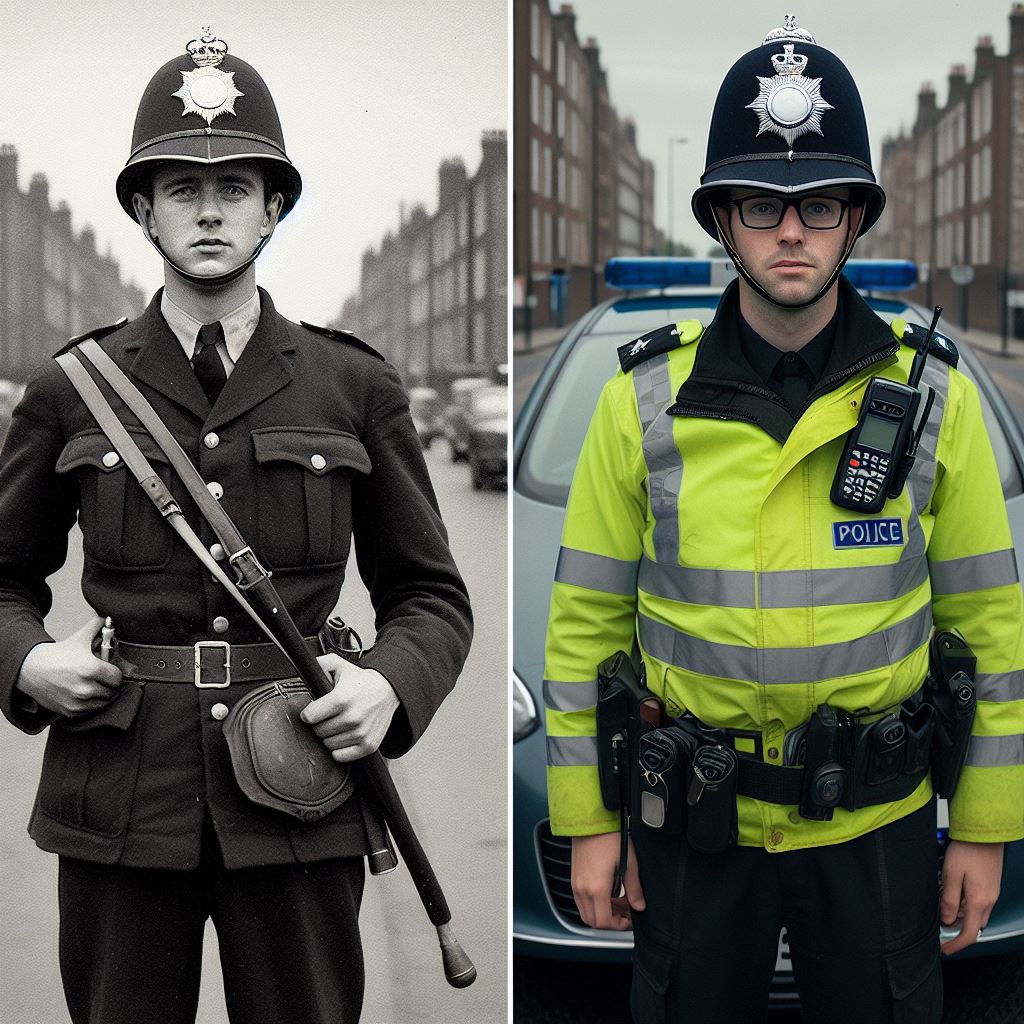
Policing during World Wars
The role of the police force during World War I and World War II
During World War I, the police force played a crucial role in maintaining public order and security.
They were responsible for enforcing curfews, rationing regulations, and controlling civil unrest.
As the war escalated, the police force expanded and recruited auxiliary officers to support their efforts.
Their primary focus was to prevent enemy sabotage, conduct surveillance, and enforce blackout measures.
Apart from traditional policing duties, the police also had to deal with an increase in crime rates, including theft and looting
Optimize Your LinkedIn for Success
Boost your LinkedIn profile with a professional bio, keyword-rich headline, and strategic recommendations that attract recruiters. Stand out from the crowd and get noticed.
Optimize NowDuring World War II, the role of the police force expanded further.
They were entrusted with maintaining law and order on the home front while large numbers of officers were serving in the military.
The increased reliance on police services necessitated a transformation in policing strategies. The police force had to adapt to handle air raids, bombings, and the aftermath of attacks.
They played an essential role in rescue operations, providing first aid, and evacuation of civilians during air raids.
Changes in policing strategies and responsibilities during wartime
Policing strategies and responsibilities changes during world war I
- To cope with the challenges, the police force collaborated closely with the military and intelligence agencies.
- Their efforts were aimed at protecting vital infrastructure, such as railway lines and communication networks.
- The police also actively engaged in intelligence gathering and counterintelligence operations to identify potential threats.
- The evolving role of the police during World War I necessitated the formation of specialized units, such as the Special Branch.
- These units focused on counterespionage, surveillance, and gathering intelligence on enemy agents operating within the country.
Changes in policing strategies and responsibilities during World War II
- The challenges posed by the war led to the establishment of the Women’s Police Service, which played a vital role in maintaining social order, search and rescue, and traffic control.
- The organization and structure of the police force evolved to incorporate these changes.
- The demands of wartime required better coordination with other emergency services, such as fire and ambulance departments.
- To ensure effective communication and coordination, joint control centers were established.
- These centers allowed for the quick mobilization and deployment of resources during emergencies.
Impact of wartime on the structure and organization of the police force
- The impact of wartime on the structure and organization of the police force was profound.
- Resourcing challenges arose due to the loss of officers who had enlisted in the military.
- Women were increasingly recruited to fill the staffing gaps left by male officers.
- The war also accelerated the adoption of new technologies, such as wireless communication and improved transportation.
- These advancements enabled the police force to respond more rapidly to incidents and coordinate their efforts efficiently.
- Additionally, the experience gained during the wars led to the development of new policing strategies.
- The use of intelligence, surveillance, and informants became more prevalent to identify potential threats.
Overall, the wars had a lasting impact on policing in the United Kingdom, shaping its structure and responsibilities.
Changing Role and Challenges
The changing role of the police in society over the years
Over the years, the role of the police in society has undergone significant transformations.
Originally, their main focus was on maintaining law and order, responding to emergencies, and conducting investigations.
However, as society evolved, so did the demands placed on law enforcement agencies.
Challenges faced by the police force, such as emerging crimes and societal changes
One of the challenges faced by the police force is the emergence of new and complex crimes.
Technological advancements have given rise to cybercrimes, such as identity theft and online scams, which require specialized skills and knowledge to tackle effectively.
Additionally, the increased prevalence of drug trafficking, terrorism, and organized crime has forced the police to adapt and develop new strategies.
Societal changes have also presented challenges for the police.
With the advent of social media and the internet, information is readily accessible, and public scrutiny of police actions has intensified.
This heightened transparency has led to a demand for increased accountability and transparency from law enforcement agencies.
The implementation of community-oriented policing and its impact
The adoption of community-oriented policing addresses challenges by fostering strong police-community relationships.
Collaboration enhances crime-solving and prevention.
Impact of Community-Oriented Policing in the United Kingdom
- Building Trust: Community-oriented policing bridges the gap, fostering trust and confidence between police and the public.
- Problem-Solving Emphasis: It shifts focus to proactive problem-solving and prevention rather than reactive measures.
- Tailored Strategies: Engaging with the community allows police to tailor strategies, addressing specific concerns and needs effectively.
- Collaboration for Rehabilitation: In high drug-offense areas, collaboration aids rehabilitation, reducing crime.
- Citizen Participation: Programs like Neighborhood Watch empower citizens to report suspicious activities, aiding prompt police responses.
In essence, as societal changes and new crimes challenge law enforcement, community-oriented policing allows adaptation and effective response.
Gain More Insights: Diplomatic Protocol & Etiquette: A UK Perspective
Uncover the Details: Diplomatic Training: Preparing for a UK Post
Recent Developments
Contemporary issues and developments in policing in the UK
In recent years, there have been several notable developments in policing in the United Kingdom.
These developments have addressed contemporary issues and aimed to improve the effectiveness and efficiency of law enforcement.
Counter-terrorism, cybercrime, and the use of technology
One significant area that has received increased attention is counter-terrorism.
The UK has faced a growing threat from terrorist organizations, leading to a focus on preventive measures and intelligence gathering.
The police have been empowered with wider search and arrest powers, allowing them to combat terrorism more effectively.
In tackling cybercrime, the police have recognized the need to adapt to the evolving nature of criminal activities.
With the rise of internet-based crimes, such as hacking and online fraud, law enforcement agencies have invested in technology and specialized units.
Cybercrime units are dedicated to investigating and preventing online crimes, ensuring that criminals are brought to justice in the digital realm.
Technology has played a vital role in modernizing the policing system in the UK.
The use of body-worn cameras by police officers has become increasingly common, fostering transparency and accountability.
These cameras not only provide valuable evidence in criminal investigations but also act as a deterrent against misconduct by both police officers and members of the public.
The implementation of predictive policing is another innovative use of technology.
By analyzing historical crime data, law enforcement agencies can identify crime hotspots and allocate resources accordingly.
This proactive approach helps in preventing crimes before they occur, making communities safer.
Recent reforms and initiatives to improve policing
Recent reforms and initiatives have also aimed to improve policing practices in the UK.
- The College of Policing standardizes training and sets professional standards, ensuring consistent competence and professionalism nationwide.
- Community policing has been given renewed importance, to foster stronger relationships between the police and the communities they serve.
- This approach aims to build trust and collaboration, enabling the police to better understand local issues and effectively address them.
- Efforts to enhance police force diversity focus on initiatives for equality and inclusivity, attracting a diverse range of individuals to join.
- This inclusivity strengthens the force’s ability to connect with and serve different communities within the UK.
In a nutshell, recent developments in policing in the United Kingdom have focused on addressing contemporary issues and adapting to changes in criminal activities.
The emphasis on counter-terrorism, cybercrime, and the use of technology has allowed the police to tackle evolving threats effectively.
Furthermore, reforms and initiatives have aimed to improve policing practices and promote inclusivity within the force.
These developments are crucial in ensuring the safety and security of the UK population in an ever-changing landscape.
Read: Policing and Legal Rights in the UK Explained
Learn More: The Evolution of UK Diplomatic Missions Abroad
Conclusion
The evolution of policing in the United Kingdom has been a complex and dynamic process.
From the establishment of the Metropolitan Police in 1829 to the modern era of community policing, various factors have shaped the development of law enforcement in the country.
Understanding this evolution is crucial as it provides insights into the challenges and opportunities facing the police force.
It allows us to appreciate the progress made in terms of professionalism, accountability, and community engagement.
Moreover, it helps us identify the areas that still require improvement.
The importance of understanding the evolution of policing in the UK cannot be overstated. It enables us to learn from the past, avoid repeating mistakes, and shape better future strategies.
By acknowledging the historical context, we gain a deeper understanding of the complexities and nuances of modern policing.
Looking to the future, it is clear that policing in the UK will continue to evolve in response to societal changes, advancements in technology, and emerging threats.
The police force will need to adapt their approaches, embrace innovation, and maintain public trust.
Efforts to enhance diversity and inclusion within the police force, improve community relations, and adopt evidence-based practices will be crucial.
Additionally, collaboration with other agencies, greater use of data analytics, and investment in training and resources will contribute to the future success of policing in the country.
Ultimately, understanding the evolution of policing in the United Kingdom is not only a fascinating historical endeavor but also a pivotal aspect of shaping the future of law enforcement.
By embracing the lessons learned and addressing the challenges ahead, the police force can continue to protect and serve the people of the UK effectively.
[E-Book for Sale]
500 Cutting-Edge Tech Startup Ideas for 2024 & 2025: Innovate, Create, Dominate
$19.99 • 500 Tech Startup Ideas • 62 pages
You will get inspired with 500 innovative tech startup ideas for 2024 and 2025, complete with concise descriptions to help you kickstart your entrepreneurial journey in AI, Blockchain, IoT, Fintech, and AR/VR.

